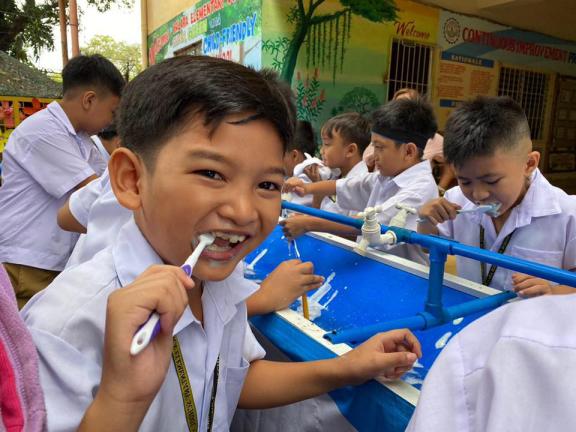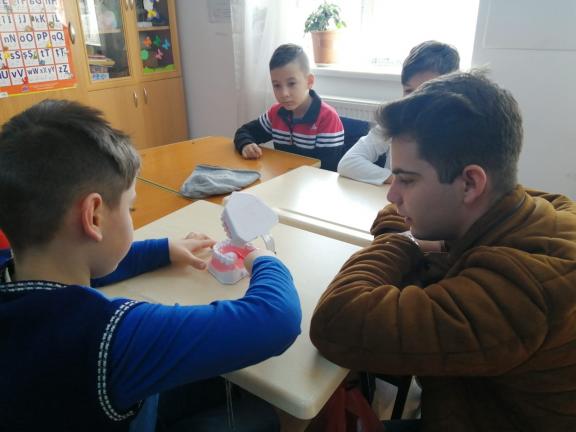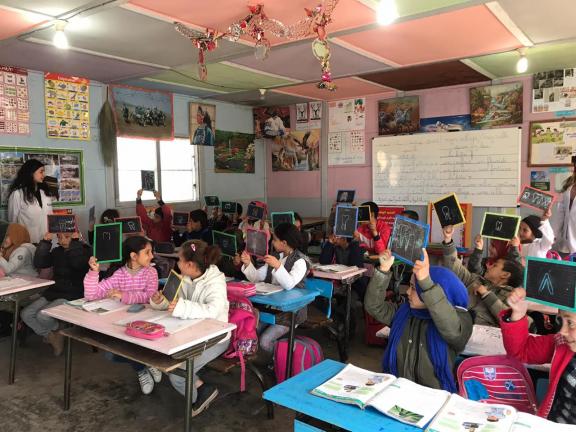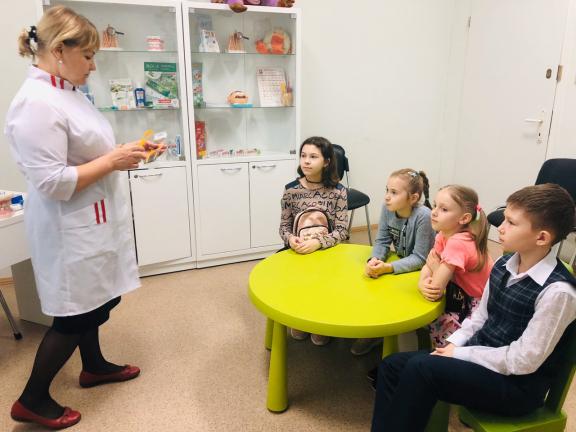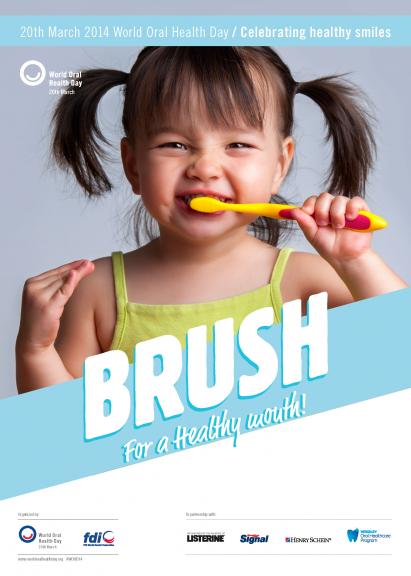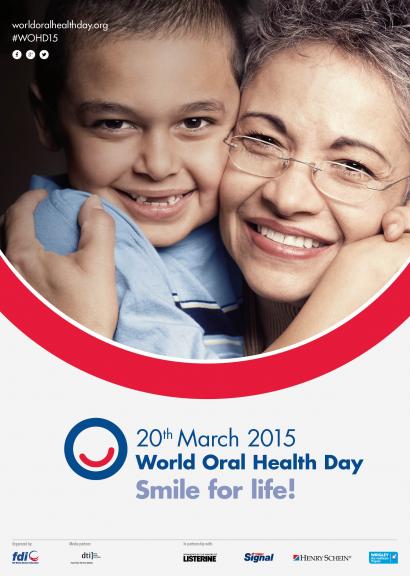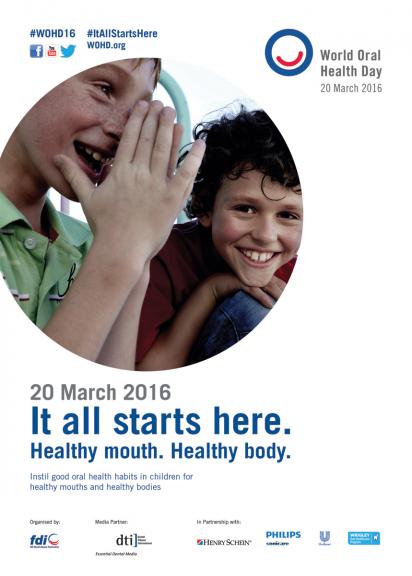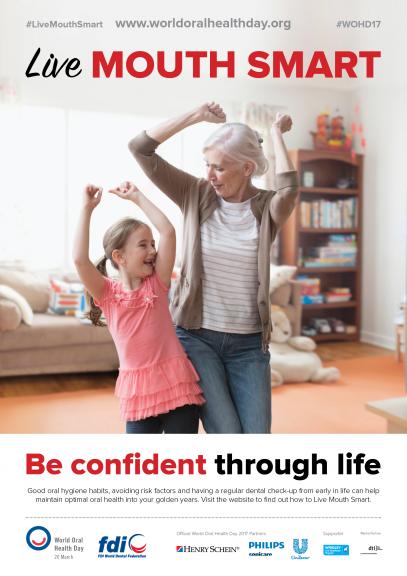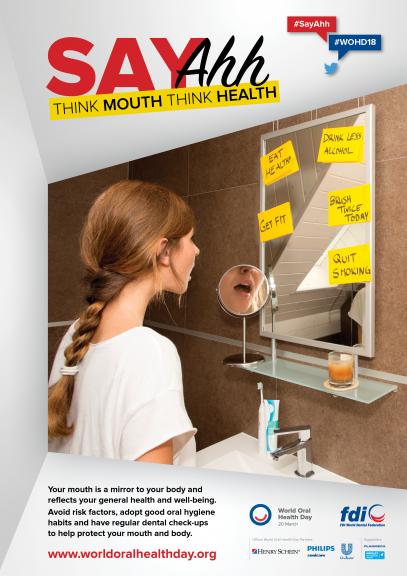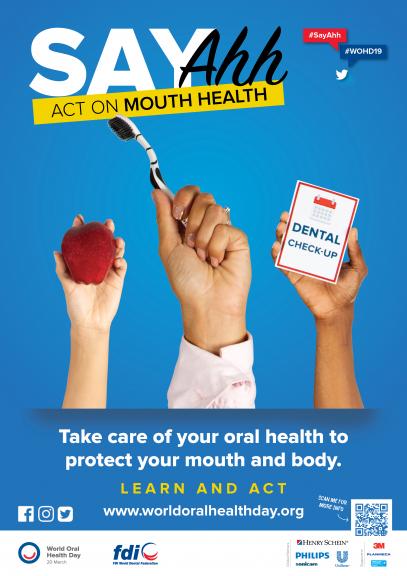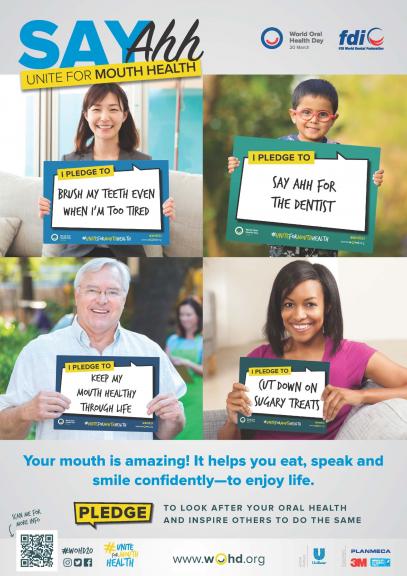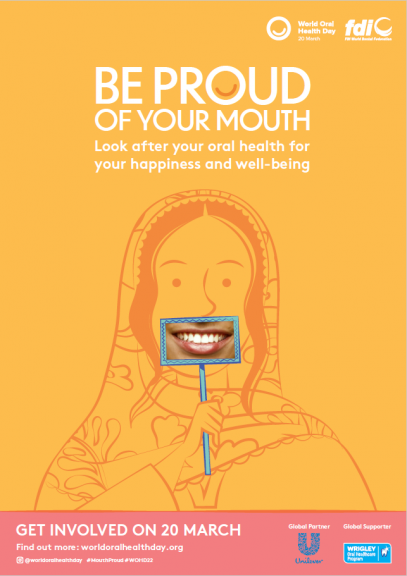About World Oral Health Day
On the 20 March every year, we ask the world to unite to help reduce the burden of oral diseases, which affect individuals, health systems and economies everywhere.
What is World Oral Health Day purpose?
World Oral Health Day aims to empower people with the knowledge, tools and confidence to secure good oral health.
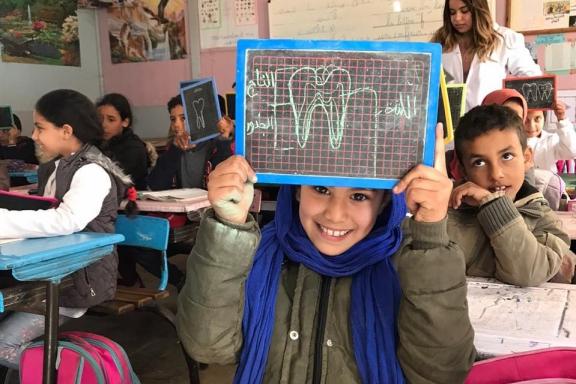
Why is World Oral Health Day important?
Oral diseases are a major health concern for many countries and negatively impact people throughout their lives. Oral diseases lead to pain and discomfort, social isolation and loss of self-confidence, and they are often linked to other serious health issues. And yet, there is no reason to suffer: most oral health conditions are largely preventable and can be treated in their early stages.
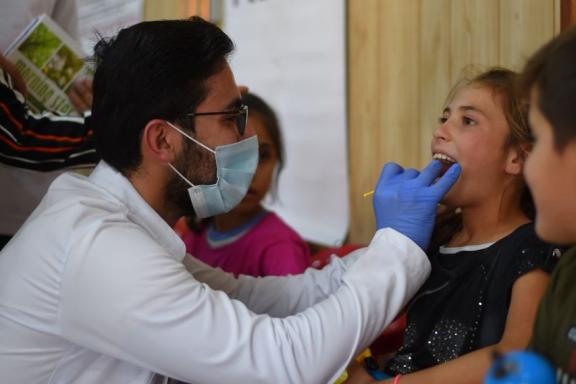
Who is World Oral Health Day targeted to?
- individuals to take personal action
- schools and youth groups to deliver learning activities about oral health
- oral health professionals and the wider healthcare community to educate the populations they serve
- governments and policymakers to champion better oral health for all.
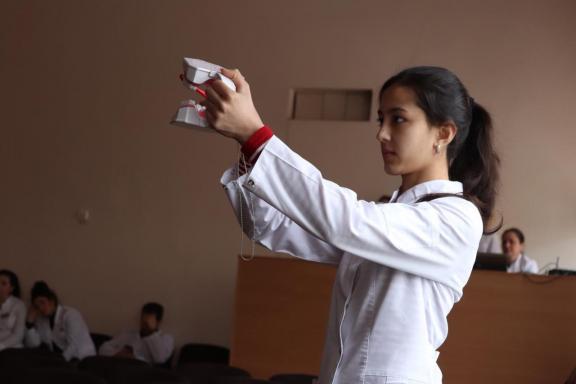
How to get involved
FDI relies on individual action worldwide to roll out World Oral Health Day in each country and create a truly global movement. We encourage you to use your local expertize to create awareness and roll-out WOHD in your community. Whatever you decide to do, however big or small, contributes to improving the oral health of populations globally.

Who organizes World Oral Health Day?
World Oral Health Day is an initiative of FDI World Dental Federation; an organization that brings together the world of dentistry with the aim of achieving optimal oral health for everyone.

History
World Oral Health Day was first declared in 2007 and was originally celebrated on 12 September - the birth date of FDI founder Dr Charles Godon. However, the campaign was not fully activated until 2013, after the date was changed to 20 March to avoid conflict with the FDI World Dental Congress taking place in September.
The new date was chosen to reflect that:
- Seniors must have a total of 20 natural teeth at the end of their life to be considered healthy
- Children should possess 20 baby teeth
- Healthy adults must have a total of 32 teeth and 0 dental cavities
- Expressed on a numerical basis this can be translated as 3/20 hence March 20
-
2013: Healthy Teeth for a Healthy Life
-
2014: Celebrating Healthy Smiles
-
2015: Smile for Life!
-
2016: Healthy mouth. Health body.
-
2017: Live Mouth Smart
-
2018: Say Ahh: Think Mouth Think Health
-
2019: Say Ahh: Act on Mouth Health
-
2020: Say Ahh: Unite for Mouth Health
-
2021: Be Proud of Your Mouth for your general health
-
2022: Be Proud of Your Mouth for your happiness and well-being
-
2023: Be Proud of Your Mouth for a lifetime of smiles

